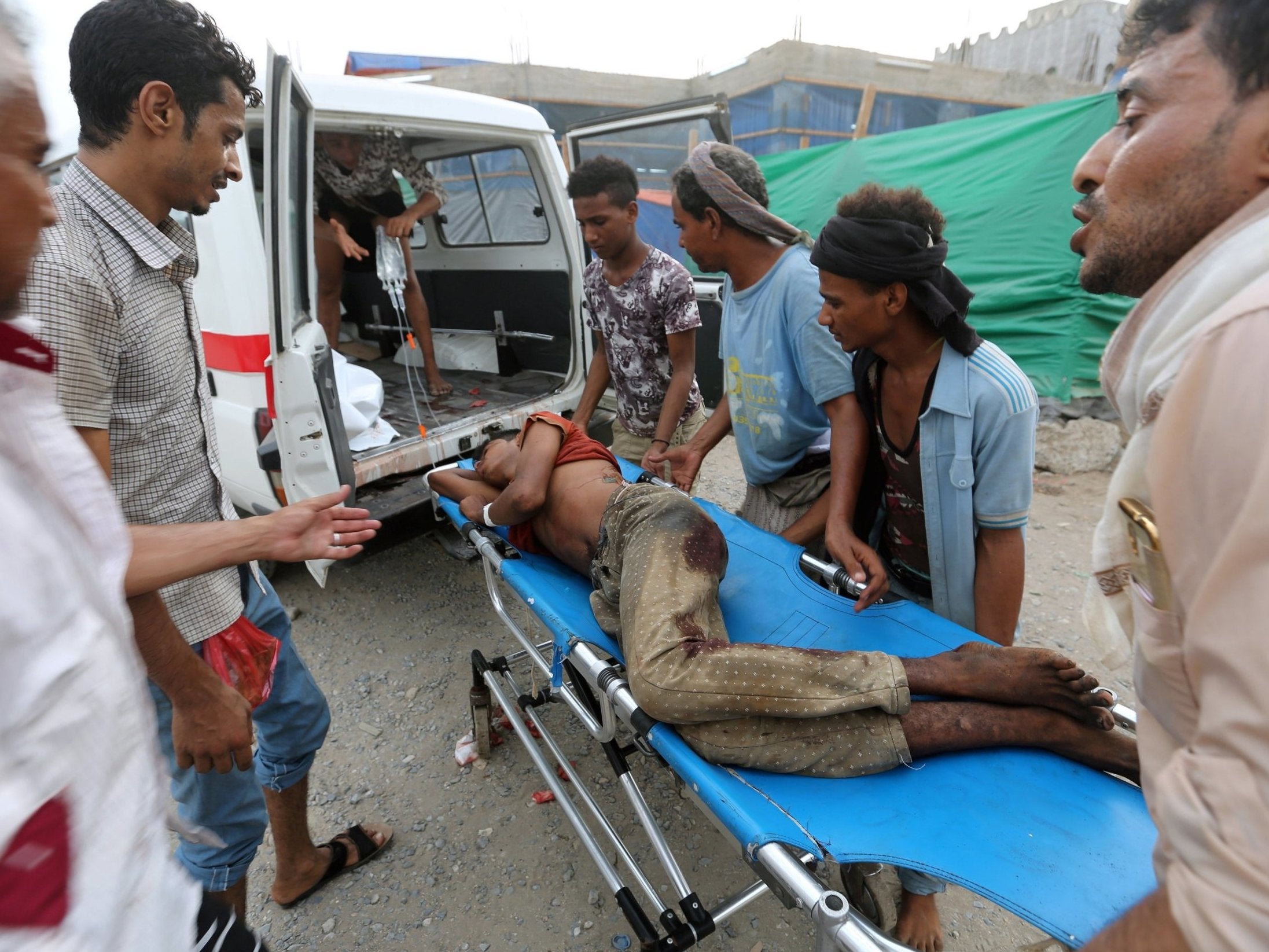Yemen airstrikes kill nearly 30 people as WHO warns of new cholera outbreak
Doctor describes ‘painful, shocking and sad experience’ of witnessing attack
Medical officials in Yemen said airstrikes on a fishing port and fish market in the rebel-held port city of Hodeidah killed nearly 30 people and injured 70.
Officials said the Saudi-led coalition fighting Yemen’s Shia rebels conducted the strikes, but the coalition has denied carrying out any attacks in the city.
The airstrikes took place close to the city’s main public hospital, al-Thawra, and near a popular fish market, the officials said.
The wounded, mostly civilians, were hospitalised.
Rebel-run Al Masirah TV reported the airstrikes had killed 52 people and left more than 100 wounded.
The coalition’s spokesman, colonel Turki al-Malki, told the Saudi-owned Al Arabiya satellite news channel it didn’t carry out any attacks on Hodeida and blamed the attacks on Houthi rebels.
He said the coalition “follows a strict and transparent approach based on the rules of international law”.
Dr Yaser Nour, head of the oncology centre at al-Thawra hospital, described the “painful, shocking and sad experience” of witnessing the attack.
He said the hospital’s emergency entrance was “full of dead and wounded coming from the fish market after being targeted”.

Dr Nour was in the oncology centre when he heard the airstrikes nearby and “saw the smoke rising in front of the emergency gate. I was in a state of severe panic. Everyone was running scared while I was heading towards the emergency gate.”
He said: “I saw more than 10 bodies, including four women and a young girl. While on the street, the body of a man was still stuck on a motorcycle hit by the bombing.”

The Saudi-led coalition backing Yemen’s internationally recognised government has sought to expand control over rebel-held areas along Yemen’s west coast, particularly in the vital Red Sea port city of Hodeidah, the main entry point for food in a country teetering on the brink of famine.
The coalition has been at war with the Iran-backed Houthis since March 2015.
It comes as the World Health Organisation (WHO) said the country may be on the brink of a new cholera epidemic and the United Nations called for a ceasefire in the north to allow for vaccinations.
“We’ve had two major waves of cholera epidemics in recent years and unfortunately the trend data that we’ve seen in the last days to weeks suggests that we may be on the cusp of the third major wave of cholera epidemics in Yemen,” WHO emergency response chief Peter Salama told reporters in Geneva.
“We’re calling on all parties to the conflict to act in accordance with international humanitarian law and to respect the request of the UN and international community for three full days of tranquillity and to lay down arms to allow us to vaccinate the civilian population for cholera.”
Northern Yemen has never had an oral cholera vaccination campaign, but 3,000 healthworkers plan to vaccinate more than 500,000 people over the next three days in and around Hodeidah.
Commenting on the attack on al-Thawra hospital, Lise Grande, the UN humanitarian coordinator for Yemen, said hundreds of thousands of people depended on the hospital to survive.
In a statement, she said: “Every day this week we have seen new cholera cases in Hodeidah, and now this. The impact of the strikes is appalling. Everything we are trying to do to stem the world’s worst cholera epidemic is at risk.”
Join our commenting forum
Join thought-provoking conversations, follow other Independent readers and see their replies
Comments
Bookmark popover
Removed from bookmarks